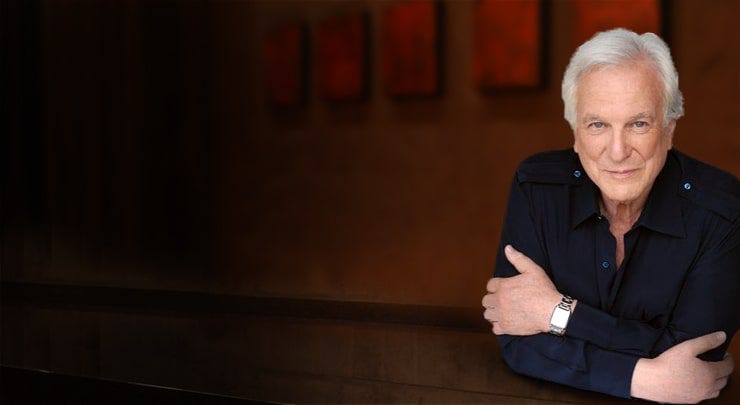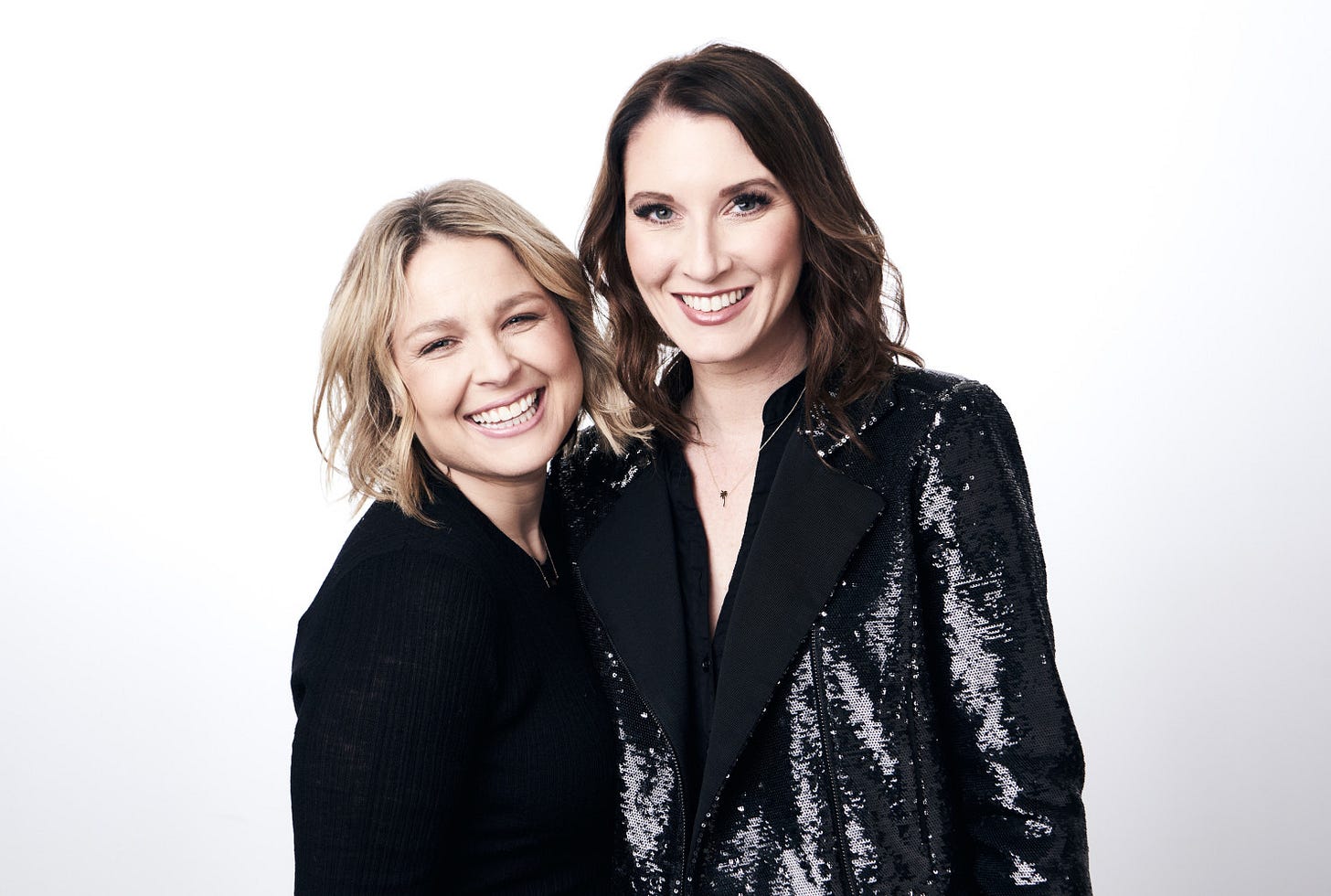Chaos and Order: How SIX Different Modern Coaches Would Teach You to Clean Your Room
How many approaches can we find?

***These are all conjecture. If any of the practitioners issue a correction, I would be OVER THE MOON.***
“Clean your room” — Okay, how? :)
Over the years I have gone through several cycles of upgrading some part of the “clean your room” process.
I had also been reading a book in which “cleaning your room” was used as the main example for the first third of the book.
Given the ubiquity of the problem of having to clean up a literal mess, I thought that a write-up of some of the different coaching techniques one can use for the different “cycles” or “stages” of cleaning your room might be interesting.
These are all guesses from reading the practitioners’ books. I like all of the practitioners, and any misrepresentation is accidental!
***This is a living post! Comments or messages are encouraged and can be incorporated with credit if you want it.***
Kasia Urbaniak
Kasia might ask you what you want out of your space. No, not what you think you should want—what you actually really want.
Do you want not to have to use your brain when you get out of bed in the morning, doing fancy brain calculus to traverse random objects?
Do you want space to put that new coffee machine you’d been eyeing?
Do you want to stop being tired before every party you throw, because you’d been cleaning all day?
Contrast the wants that feel alive and real with wants that you think you should want.
If I clean my room, I’m a good person.
If I clean my room, I’ll be like other people who have their life together who have clean rooms.
Notice how the different “wants” feel in your body.
Do some make you feel exaltation, aliveness, desire, and expansiveness?
Do some make you feel smaller, more squashed?
Lean into the wants that make you feel bigger, with more possibilities for your life, even if you feel like it might be slightly too big for you, or like you do not deserve to get what you want.
If you want to read my summary of her book, check out this post.
If you want to get her book, Unbound: A Woman's Guide to Power, check out this website: www.kasiaurbaniak.com
Eugene Gendlin
Eugene Gendlin (1926 - 2017) could be helpful if you don’t know where to start, feel resistances to the concept of cleaning or your room, or have other confusing feelings.
He may have you think about a moment of such confusion, and stay with it using his method called Focusing.
His six steps for Focusing are outlined here.
His first step is to clear a space, feel inside yourself, and ask the questions:
"How is my life going? What is the main thing for me right now?" Sense within your body. Let the answers come slowly from this sensing. When some concern comes, DO NOT GO INSIDE IT. Stand back, say "Yes, that’s there. I can feel that, there." Let there be a little space between you and that. Then ask what else you feel. Wait again, and sense. Usually there are several things.
Potential times when it might be useful to try Focusing:
When you know you should clean something, but feel fear in that moment rather than a felt sense of competence.
When you are noticing that you are cleaning in a way that isn’t making you happy. Perhaps you feel more rushed or more anxious than you would like to be.
When somebody tells you that your home should be a different way, but you feel offense and then contentment with the state of your home.
When you just did a job well done, but feel meh rather than flooded with productivity brain chemicals that you think are supposed to come and make you feel good.
When you notice yourself having a fragile dream of what things could be like that you don’t want to vanish.
There is a 1-hour audio on Spotify of Gendlin’s method, as well as the book, Focusing. He also has written the book, A Process Model, and a book on dream interpretation, Let Your Body Interpret Your Dreams, among others.
Carolyn Lovewell
Carolyn Lovewell would use her Existential Kink method from her book of the same name.
She would tell you that if you secretly want your space to be messy, then why would you make it clean? You are already getting what you want (the mess) versus what you do not want (the elimination of the mess).
She may say that there are many perfectly valid reasons to want your place to not be clean:
You enjoy looking at all your stuff.
You feel good looking at all your trash as a reminder of your luxurious consumption that week.
You love the freedom of getting to do what you want and not what you are told (perhaps freedom from an over-disciplinarian parent or partner).
You love seeing yourself as having more important things to do.
You want to feel yourself as a sexy, feral animal not constrained by any of society's rules, not a frigid neat freak.
If you are happy with what you want, great! You have it!
If you have conflicted feelings, then she would guide you through a set of exercises to fully enjoy, without shame, the less conventional state of your desires—until you are bored and want something different.
Perhaps after you enjoy being in your pizza box temple fully for a week straight, you will have a brand new desire of having an unobstructed path to your fridge to skip through.
Existential Kink
Carolyn Lovewell
Nathaniel Branden
Nathaniel Branden (1930 - 2014) is known for a short and powerful book called The Six Pillars of Self-esteem. The audiobook read by the author is available here for free. Turn it to 1.25 speed and it sounds fantastic.
Nathaniel might suggest his general sentence-completion exercises but modified for the goal of cleaning, specifically. Get a journal and for 30 days, every day write down this set of prompts, and then complete the sentence:
If I bring 5% more awareness to my surroundings today…
If I bring 5% more awareness to my important needs and wants…
If I am 5% more self-accepting today even when I make mistakes…
If I boost my energy level by 5% today…
There are many prompts, and some may speak to you more or more immediately than others.
You stick with it for a month, and feel the compounding effects of expanding your imagination surrounding your relationship to yourself, your relationship to your feelings, and your relationship to your environment. It is a gentle but powerful practice.
Judith Kolberg and Kathleen G. Nadeau
This is a book written for people who struggle with ADHD symptoms, but its techniques can be applied to many people outside of this category—people who are generally busy or have gone a long time without feeling like they are in control of their environment.
Kolberg and Nadeau would start off by saying there is nothing wrong with you for not “already having a clean room.”
Then, they would walk you through a series of tools you can implement in order to have a generally cleaner life.
They would start off by encouraging observation so that the exact right tool could be created.
Insofar as there are “problems” that you have diagnosed—what exactly are they? If somebody observes you like a fly on the wall, what would they see?
Do you keep losing your keys?
Do you never have clean plates?
Do you forget to vacuum?
Are your clothes on the floor and not in the closet?
Do you hoard Amazon boxes?
Is your couch unsittable because there are things on it?
Do you not use things you just bought because they aren’t in the right spots?
Then, depending on the diagnosis, each problem would have its own intervention. Do your keys get lost because you throw them on the table, and the table is cluttered? Get a hook, or have a strategy for keeping one table decluttered with a spot for the keys.
Do you never vacuum because you never think about it? Set one Sunday each month that is the special vacuum Sunday. You never have to think about it, except for that Sunday, and then it’s like a holiday. Otherwise, include a light vacuuming as a little warmup before your weekly Sunday workout.
The premise is that you are “already doing stuff,” and so a lot of interventions involve either “adding a whole new loop” that you like and would have a way to remember, or else “adding or subtracting something from an existing loop.”
For example, when you look for something in the fridge and see something is rotting, do you throw it out then and there are part of the “looking in the fridge” loop, or do you have a separate loop later which is “clean out the fridge”? If you have neither, then your fridge simply will never get cleaned, because there is not a time in which that would that happen.
This book encourages choices that work for the happiness and benefit of each individual reading it.
It also asks where in the schema of your other life processes does cleaning fit in.
Is it a distraction you use to feel productive, but then don’t do big important things?
Are there certain kinds of cleaning or organizing that a big thing you avoid because it is overwhelming?
Do you use it as a kinetic and musical reward after you’d done an annoying task on your computer?
Kathleen’s website
Judith’s website
Clea Shearer and Joanna Teplin
These are the founders from The Home Edit system, and the Netflix show of the same name.
The Home Edit system is a method, which means it works the same way with everybody, regardless of individual circumstances. Like other methods, it requires a certain surrender to the method and a leap of faith.
The Home Edit system
**Work one area at a time (closet, kitchen, cabinet)
Edit: Remove your items. As you do this throw away items you don't need
Categorize: Group items into categories
Contain: Put items in containers. Put them back.
Maintain: Maintain the integrity of the containers as time progresses, redoing the method as needed.
This requires a leap of faith because there is no self-evident reason to assume that removing your things, throwing some away, and then putting them back would lead to a substantially better outcome than…anything else.
However, it works extremely well. If the steps are followed, it is always much less decluttered than when you started.
***This post is inspired by Milan Patel’s style of digital organization!***






